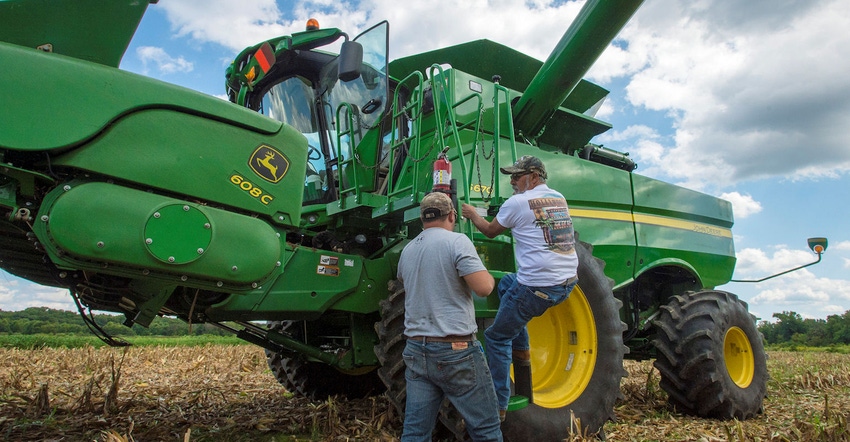Innovation is the inevitable, unavoidable and to be welcomed future of farming.
September 25, 2019

There was a common theme during the morning session of the recent KC Ag Outlook Conference. The speakers all agreed that innovation was the future of agriculture. I Tweeted “Farming like we did last year will not work well next year.” Bravely, perhaps foolishly, walking past the objections of a small but very vocal group of activists, one speaker suggested gene editing will be important.
So you think the public doesn’t understand what you do today? Try selling them on gene editing tomorrow.
Def: Genome editing, or genome engineering, or gene editing, is a type of genetic engineering in which DNA is inserted, deleted, modified or replaced in the genome of a living organism.
Gene editing been around agriculture for at least a quarter century. It first appeared in 1994 when the U.S. Food & Drug Administration approved a genetically modified tomato variety, the world’s first GMO crop for food consumption. Called the Flavr Savr, ripening was delayed by the insertion of an antisense gene that interferes with polygalacturonase production.
And too many people screamed about the rise of Frankenfood. A Godzilla-like food monster, they believed, had been unleashed on an unsuspecting public. We were to be fed something that would cause premature death and destruction, malformed babies and an end to civilization as we know it. The Flavr Savr never got a foothold as a fear-driven, ill-informed public grabbed pitchforks and torches and stormed the imaginary castle of the evil scientist overlord that developed the accursed product.
Recently, CRISPR/Cas9 has been used in livestock genome editing, rendering precision livestock breeding technically feasible. It’s possible to raise sturdier animals today, better able to withstand climate extremes or withstand disease, capable of better feed conversion rations and delivering a higher quality product to the consumer.
Scientists have already shown genetically modified salmon can grow twice as fast as conventional Atlantic salmon, for instance, through the introduction of two different transgenes: a growth hormone gene from a Chinook salmon and a promoter sequence of an anti-freezing protein gene from the eel-like ocean pout. In 2015, the Food & Drug Administration concluded the GM salmon was safe. In 2016, two Canadian regulators also declared it was safe for both human food and livestock feed.
Once again, pitchforks and torches were brandished. Anti-GMO folk have discovered how easy it is to foment fear among the populace, turning them into a herd of stampeding cattle, spooked by the first lightning storm of the season.
And the good works done by researchers at the land grant colleges throughout the heartland to improve the production of all foods, from animal protein to grains and row crops, gets crushed in the stampede.
The public will say, “I don’t know, but I believe” and will be led away from the scientifically proven advantages of improved food production by the descendants of Ned Ludd, the 18th century Leicestershire, England, workman who destroyed a knitting frame and gave his name to a movement, all in a misguided effort to save his job.
A word to the wise: Farming is becoming increasingly ‘high tech.’ Your grandad worked his fields from fence to fence post with a mule and an iron plow. Today, you might be riding a John Deere 9620, guided by a sophisticated GPS system. Tomorrow, you won’t even be in the self-driven tractor.
Way back when, your grandad went into the fields with as many family members as he could muster to bring in the harvest. Today, you’re using all the field hands you can hire. Tomorrow, the work will be done by machines produced by the likes of John Deere.
Yeah, innovation is the inevitable, unavoidable and to be welcomed future of farming.
It’s up to you to keep the public informed about what you’re doing and what you plan to do, all done in their best interests.
If you don’t, someone else is more than ready to do it for you and you probably won’t like the way they’ll talk about you and your children and the future of farming. The Luddites will prevail.
About the Author(s)
You May Also Like

.png?width=300&auto=webp&quality=80&disable=upscale)

